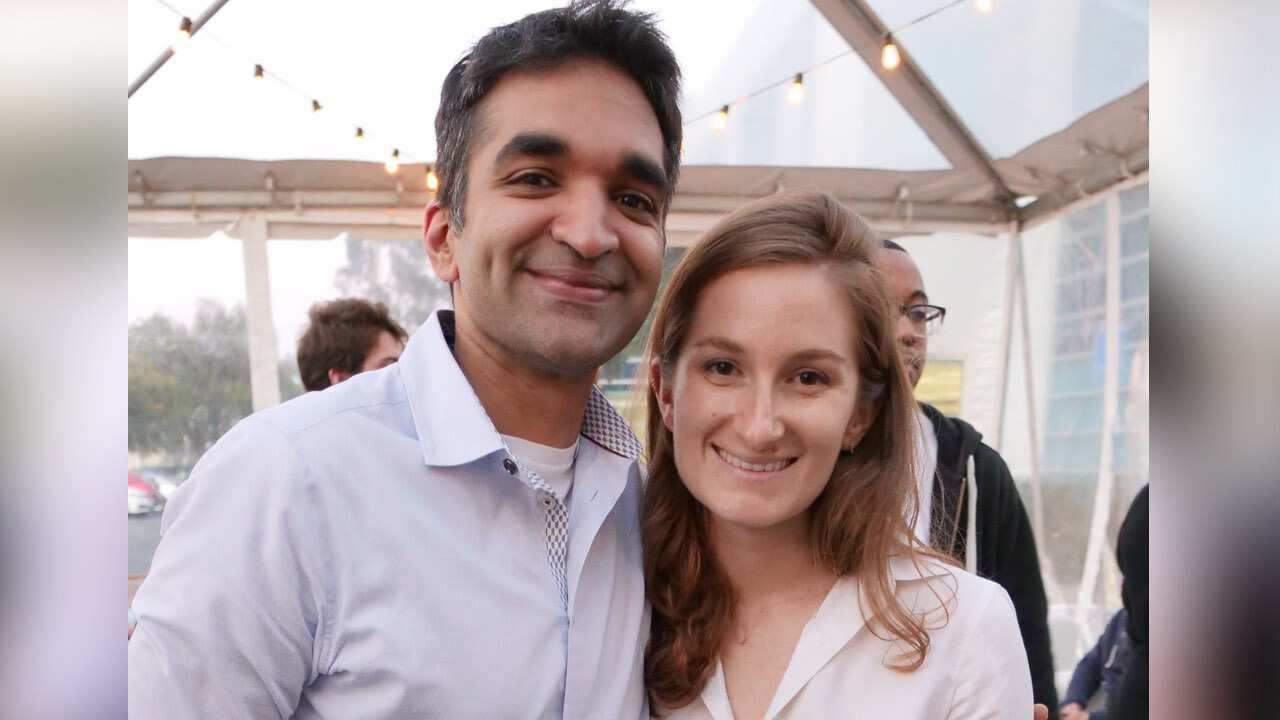When a parent learns their newborn child has epilepsy, the first questions are almost always, “Why did this happen?” and “What can we do?” As a physician and relative of a child with pediatric epilepsy related to a genetic disorder, I’ve seen the anguish of pediatric epilepsies firsthand. Parents do their best to manage their child’s symptoms through frequent (and often stressful) visits to the clinic for treatment, but in the majority of cases, there’s no way to fix these disorders at the root.
A husband and wife team of neuroscientists from MIT are on a mission to change this. Dr. Kartik Ramamoorthi and Stephanie Tagliatela co-founded Encoded Therapeutics six years ago to target the underlying mechanisms of pediatric genetic disorders, starting with a push to end a devastating form of epilepsy called Dravet Syndrome.
 Encoded Therapeutics cofounders Dr. Kartik Ramamoorthi and Stephanie Tagliatela
Encoded Therapeutics cofounders Dr. Kartik Ramamoorthi and Stephanie Tagliatela
First appearing in infancy, Dravet Syndrome affects 1 in 16,000 babies worldwide. Children born with it have uncontrollable seizures, ataxia, and significant developmental delays. Many do not make it to adulthood: tragically, sudden unexpected death during an epileptic seizure strikes 15-20% of patients. Those that survive and live into adulthood remain with cognitive, behavioral, and often physical disabilities.
When I first met Kartik at the J.P. Morgan Healthcare Conference in San Francisco, he spoke passionately about using gene therapy to solve childhood epilepsies. Imagine if patients could trade their regular, often ineffective treatments for a “one-and-done” single injection that ends their epilepsy for good. Using a gene therapy approach with a combination of genomics and computational technologies, Encoded is working to fix the malfunctioning cells that form the root cause of Dravet Syndrome.
If they succeed, their approach to gene therapy will not only rescue families with Dravet Syndrome, but may lead to solving other pediatric genetic diseases.
My GV colleague Brendan Bulik-Sullivan and I chose to lead Encoded’s Series D funding because Kartik and Stephanie’s team is making noteworthy progress using a remarkable approach. Here’s how it works: as any high school biology student knows, we all have two copies of every gene. In Dravet Syndrome patients, epilepsy occurs because one copy of a particular gene, the SCN1A, is broken. The Encoded team has found a way to enhance the second, normal copy to work better, restoring the gene’s function. Long-running experiments in animals show that Encoded’s approach reduces the frequency and severity of seizures, and lowers the risk of sudden unexpected death.
Nothing in drug development is a sure bet, and there’s still a lot of work to do. Yet by exploiting this haploinsufficiency — making one copy of the gene do the work of two — Encoded seems to be on a path that has the potential to erase these genetic epilepsy disorders. If they succeed, their approach to gene therapy will not only rescue families with Dravet Syndrome, but may lead to solving other pediatric genetic diseases. It’s valuable work, and we look forward to partnering with the Encoded team on their journey.